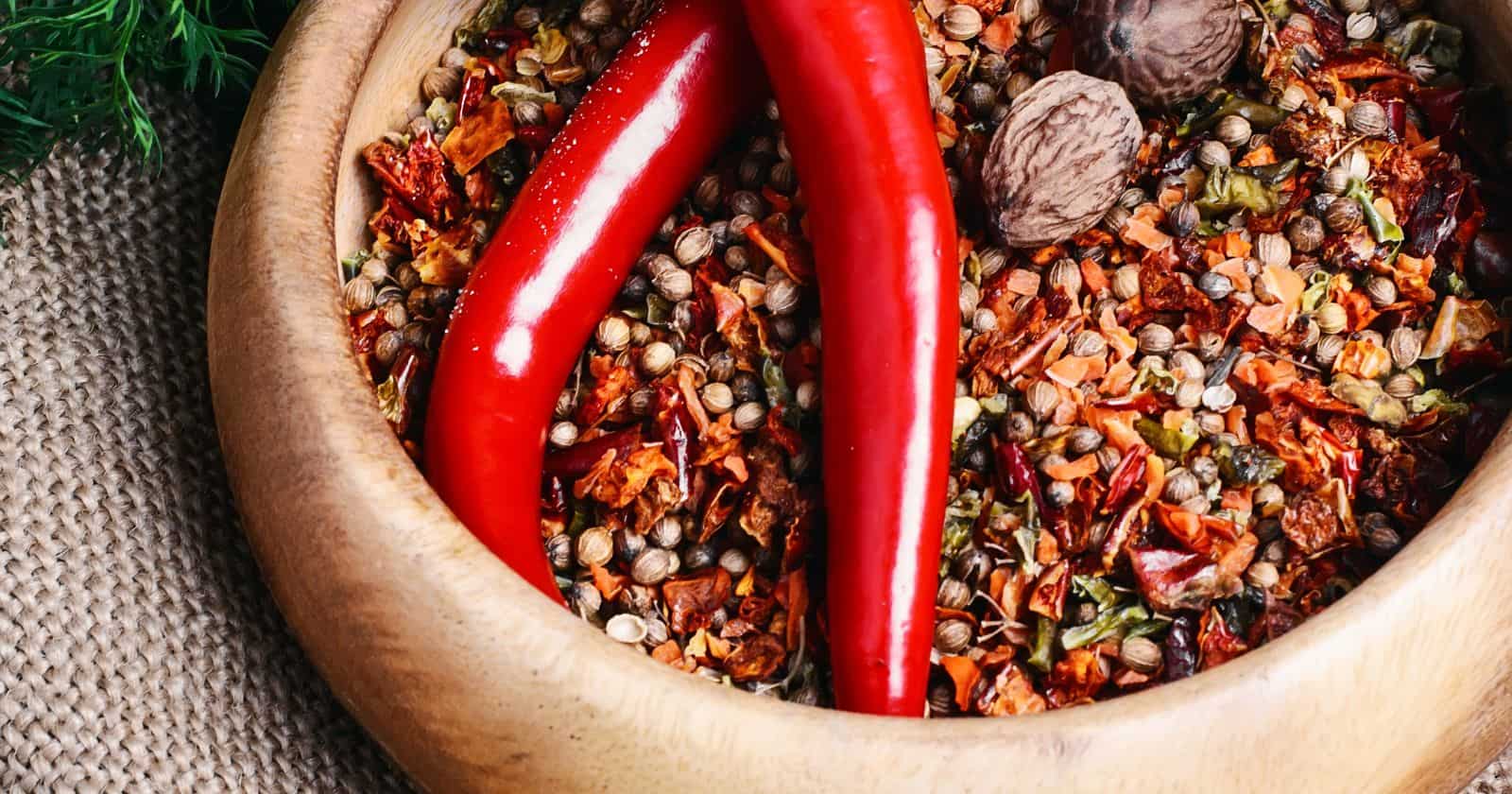Spicy foods might delight your taste buds, but they can also set your nether regions aflame. If your poop burns after eating fiery dishes, you’ve likely felt that rectal wrath.
But before you swear off salsa forever, let’s explore some ways to enjoy spicy cuisine without sacrificing your hindquarters. This cheeky guide will uncover why your bottom gets torched and how to put out the flames. Get ready to kiss that burning poop goodbye!
Why Spicy Food Lights Up Your Lower Half
Eating spicy dishes is essentially like ingesting a chemical irritant. Here’s how peppers can ignite your bottom:
Blame It on Capsaicin
That fiery compound giving peppers their punch binds to pain receptors in your intestinal lining. This triggers nerves that your brain interprets as burning.
Spices Stimulate Digestion
Compounds like capsaicin increase digestive fluid secretions and speed up gut motility. This rocket-fueled transit can irritate your rectum.
They Disrupt Your Tract’s Flora
Spicy foods can destroy good gut bacteria needed for healthy digestion. This can further inflame your intestinal tract.
Now that you know why your backside sizzles, let’s explore smart solutions. Keep reading for scientifically-backed methods to douse the fire down under.
The Impact of Spicy Food on Hemorrhoids
If you suffer from swollen, inflamed hemorrhoids, spicy foods can add insult to injury – literally rubbing salt in the wound. Here’s how fiery foods can exacerbate hemorrhoids:
- Capsaicin irritates the already inflamed hemorrhoidal tissue, causing a painful burning sensation.
- Spicy foods stimulate bowel movements, subjecting hemorrhoids to more straining and irritation.
- They can trigger diarrhea or constipation, leading to excessive pressure during bowel movements.
- Certain spices themselves, like cayenne or ginger, may directly irritate hemorrhoids.
To prevent spicy foods from inflaming hemorrhoids further:
- Avoid spicy dishes during hemorrhoid flares.
- Increase fiber slowly to make stools soft and prevent straining.
- Stay hydrated to keep stools soft.
- Use soothing creams, ice packs or sitz baths to ease discomfort.
- Consider eliminating problematic spices like cayenne or jalapenos.
Getting hemorrhoids under control is key before adding spicy foods back into your diet. Work with your doctor to manage symptoms and treat the underlying issue.
First Aid for Fiery Fannies: How to Soothe the Burn
When your bottom’s blazing, relief can’t come soon enough. Try these methods to extinguish the flame:
Chill Out with Cool Compresses
Placing a cool, damp cloth on the affected area provides soothing relief from spicy food-induced discomfort.
Milk it Away
Milk contains casein, a protein that binds to capsaicin and washes it away. Drink up to neutralize spicy food’s burn.
Soothe Your Bottom
Apply a gentle, unscented cream to the inflamed area to provide cooling relief from spicy food irritation. Avoid products containing alcohol, which can sting.
Eat More Fiber
Gradually increasing dietary fiber can help food move through your system faster, exposing your rectum to less capsaicin irritation.
Stay Hydrated
Getting adequate hydration aids digestion and keeps your BMs soft, lessening abdominal straining that can aggravate spicy food-induced inflammation.
Lifestyle Tweaks for a Pain-Free Backside
Adjusting your habits can help prevent or reduce spicy-food related tush torture:
Build Up Spice Tolerance
Gradually incorporate more peppers into your diet to allow your GI tract time to adapt without distress.
Manage Stress
Anxiety and tension exacerbate GI issues. Adopt relaxation practices like meditation to support healthy digestion.
Exercise Regularly
Physical activity stimulates the intestines and helps food waste move swiftly through your system before it can burn.
Perfect Your Pooping Posture
Elevate your feet with a footstool while on the toilet to achieve better bowel-movement alignment and decrease straining.
Choose Your Spices Wisely
All hot peppers aren’t created equal. Follow these tips to minimize fanny fire:
Take a Taste Test
Try small amounts of different pepper varieties to see which your bod can handle. Stick to those less likely to torch your tender parts.
Know Where the Heat Resides
It’s concentrated in the seeds and white pith or ribs. Removing them decreases spiciness.
Cook Your Peppers
Heat breaks down over time. Sauteeing, roasting or grilling can mellow things out.
Add Cooling Foods
Balance fiery dishes with non-spicy ingredients like cucumber, mint, pineapple or coconut milk.
When to Call the Doctor About Burning Poop
Occasional mild burning during bowel movements from spicy food is normal. But if it becomes severe or persistent, see your doctor to rule out serious conditions like:
- Hemorrhoids
- Anal fissures
- Bowel obstructions
- Diverticulitis
- Ulcerative colitis
- Irritable bowel syndrome
- Gastroenteritis
Severe abdominal pain, bloody stools, diarrhea lasting over 48 hours or inability to pass gas also warrant medical evaluation. Don’t just brush off fierce fanny fire.
When to Consider Elimination Diets
If you have chronic digestive issues like IBS and experience frequent burning bowel movements after eating spicy food, an elimination diet may help identify culprit ingredients.
Here’s an overview of this structured approach:
- Start by removing major trigger foods like dairy, gluten, eggs, soy, nuts, nightshades, and spices.
- Slowly reintroduce foods one at a time while monitoring symptoms.
- If symptoms reappear after adding a food, it may be a trigger and should be eliminated again.
- Work with a registered dietitian to ensure proper nutrition.
- Keep a detailed food and symptom journal to determine correlations.
- Once trigger foods are identified, do a final test by eliminating them for 2-4 weeks, then rechallenging.
- Customize your diet to exclude problematic foods long-term if needed.
While challenging, elimination diets can pinpoint specific triggers like spices that contribute to burning poop. Guidance from a qualified professional is recommended to implement this restrictive regimen safely.
The Bottom Line on Cooling Your Hot Head
With the right strategies, you can control the heat so occasional spicy indulgences don’t leave you feeling the burn during bathroom breaks. Stick to your





